#empress xiaoxianchun
Explore tagged Tumblr posts
Text
𝐇𝐢𝐬𝐭𝐨𝐫𝐢𝐜𝐚𝐥 𝐂𝐡𝐢𝐧𝐞𝐬𝐞/𝐊𝐨𝐫𝐞𝐚𝐧 𝐄𝐦𝐩𝐫𝐞𝐬𝐬𝐞𝐬, 𝐐𝐮𝐞𝐞𝐧𝐬, 𝐂𝐨𝐧𝐬𝐨𝐫𝐭𝐬, 𝐚𝐧𝐝 𝐂𝐨𝐧𝐜𝐮𝐛𝐢𝐧𝐞𝐬 (𝟏/?)

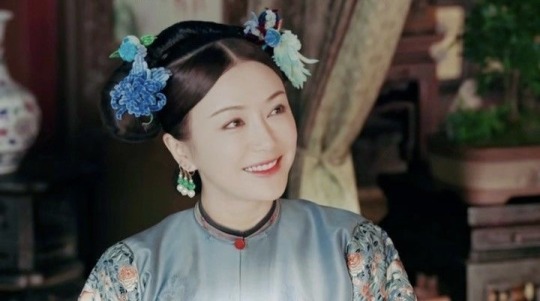
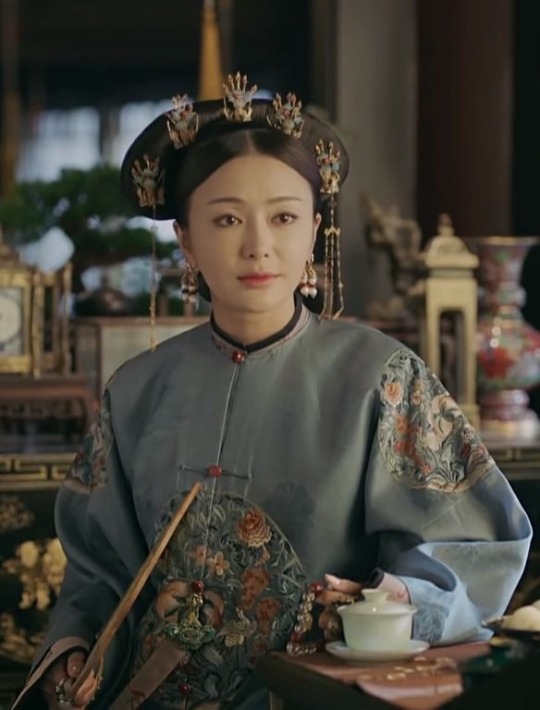

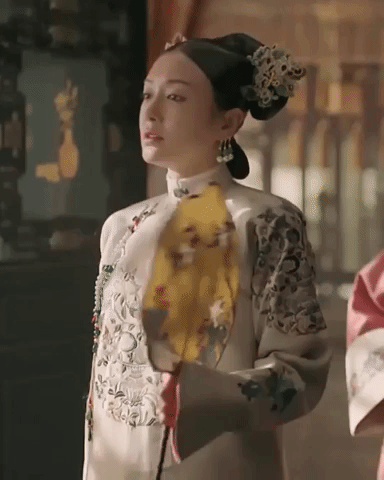
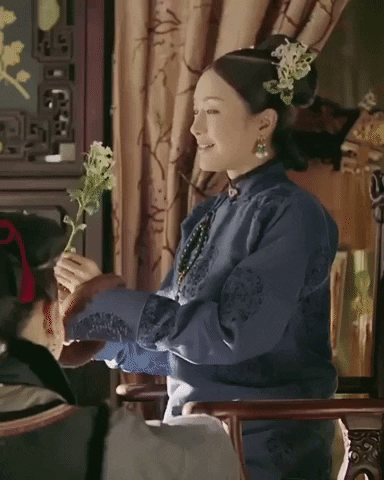
𝐄𝐦𝐩𝐫𝐞𝐬𝐬 𝐗𝐢𝐚𝐨𝐱𝐢𝐚𝐧𝐜𝐡𝐮𝐧 𝐨𝐟 𝐭𝐡𝐞 𝐅𝐮𝐜𝐚 𝐜𝐥𝐚𝐧 (𝟐𝟖 𝐌𝐚𝐫𝐜𝐡 𝟏𝟕𝟏𝟐- 𝟖 𝐀𝐩𝐫𝐢𝐥 𝟏𝟕𝟒𝟖)
*𝐀𝐥𝐥 𝐠𝐢𝐟𝐬 𝐚𝐧𝐝 𝐬𝐭𝐢𝐥𝐥𝐬 𝐠𝐨 𝐭𝐨 𝐭𝐡𝐞 𝐨𝐫𝐢𝐠𝐢𝐧𝐚𝐥 𝐨𝐰𝐧𝐞𝐫*
#empress xiaoxianchun#story of yanxi palace#historical chinese/korean empresses queens consorts and concubines
61 notes
·
View notes
Text
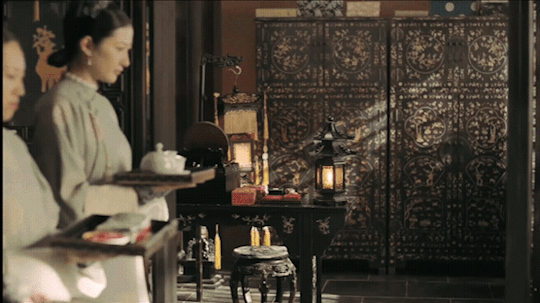
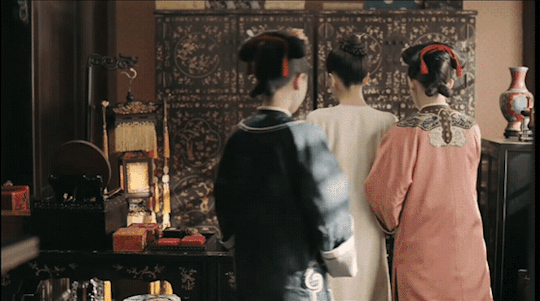
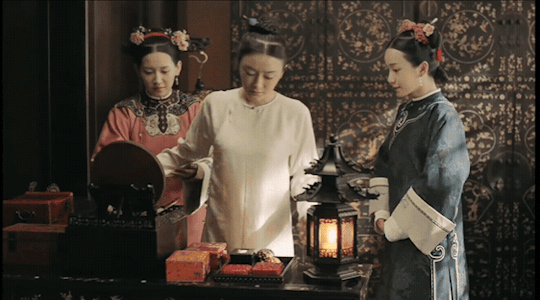
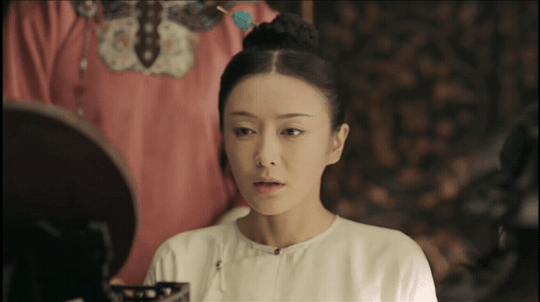
Empress Xiaoxian retaking her rule of the harem, The Story of Yanxi Palace Episode 04
#The Story of Yanxi Palace#延禧攻略#Fuca Rongyin#Empress Xiaoxianchun#cdrama#gifset#TSYP#TSYP 04#scarlett gif
7 notes
·
View notes
Text
I missed Period Drama Week but

I need to make an appreciation post
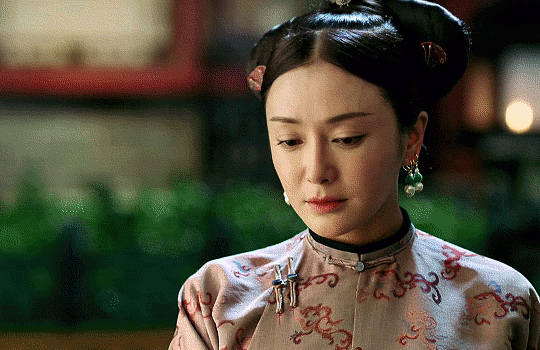
for this relationship

#the story of yanxi palace#empress xiaoxianchun will never not make me cry#her relationship with yingluo is everything#more than we ever deserved#cdrama#period drama appreciation week#historical drama
49 notes
·
View notes
Text

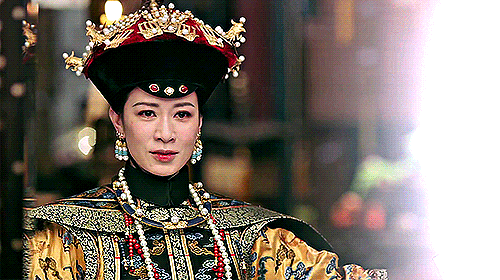

Empress Xiaoxianchun - Empress Nara - Empress Xiaoyichun
#If I am annoying enough#smart people will watch this wonderful drama?#Fuca rongyin#Haifa-nara shushen#Wei yingluo#Story of yanxi palace#*mgifs#In the role of Empress I'll forever love haifa-nara shushen#She did so much wrongs to get there. Questionable queen <3#While doing the Empress fuca's gif I was crying :-/#soyp
159 notes
·
View notes
Note
I was wondering why it was so “difficult” to depose an empress during the Qing Dynasty? I know Shunzi did this. I remember Empress Nara, who supposedly cut her hair and Qianlong couldn't stand it, but despite everything he didn't depose her. I even remember a scene from Ruyi where Qianlong says that despite knowing Empress Xiaoxianchun's involvement in the whole A'ruo and Hui situation, nothing good would come of punishing her unless he messed with her position, which doesn't happen.
The emperor doesn’t marry for love, but to secure political support. He also doesn’t marry a woman, he marries for her family. The title of empress is also not about Langhua (or Ruyi for that matter), but is a symbol of female power in the inner court which complements the emperor’s own power in the outer court. An emperor’s top priority would be to balance the two and project an image of stability, not indulge his own feelings.
It’s always been established that in universe, the Fucha clan holds significant (military) power, and in particular her brother Fuheng also has established himself as a competent and important military figure. She also has like 9 brothers who probably all hold various positions in court. Having control of military power is extremely important for an emperor and deposing Langhua will lose Qianlong the loyalty of the Fucha clan and especially Fuheng, which is a political disaster. At this point, Qianlong is still a relatively young emperor only in his 30s, he can’t afford to offend such a powerful military family.
(By the time Langhua is exposed to Qianlong, Hejing is also engaged i.e. practically married to the Mongolian Borjigit clan, an extremely important military ally to Qing emperors, so he can’t risk offending them either. The only reason Langhua ever agreed to the engagement was also because she was pressured by her family to not let the power of alliance with the Borjigit clan go to the empress dowager’s family.) (Actually no, the engagement came after. Ignore this.)
Historically, multiple generations of Empress Xiaoxian’s family have served through the reigns of 3 emperors. 三代忠臣 (loyal subjects for three generations) is a huge claim, a current emperor cannot dismiss that level of loyalty, that’s practically asking for trouble from all his other subjects. Because if he could be so ungrateful to those who served loyally for 3 generations, what’s his loyalty to them? Why should any of his other subjects remain loyal?
Langhua was chosen by the late emperor and (for all intents and purposes) Qianlong’s mother as his official wife. At this point, she has also given birth to multiple children both sons and daughters, risking her life in the process. To the world, she has been a model empress. All this holds enormous weight. Unless Langhua did something very publicly horrible that absolutely could not be hidden away, to expose any of her bad deeds would be an enormous loss of face, which in itself would have been unthinkable to an emperor as conscious of his own image as Qianlong. To cast doubts on Langhua would be saying that the late emperor and empress dowager made a horrible choice. To taint the reputations of the late emperor or the empress dowager like that could be considered as an unfilial act on Qianlong’s part.
An emperor divorcing and deposing his empress in general is also politically and socially bad. The emperor is considered the nation’s father and the empress the nation’s mother, so the state of the emperor’s family is representative of the state of the country itself. If there is peace and harmony in the emperor’s family then that’s indicative of peace and harmony in the country. If the emperor can’t even keep order within his family, he’s inviting challenge to his ability to rule the nation. It would also create a lot of unsavoury gossip among the people which would get distorted and ruin the reputation of the imperial family. To allow that kind of gossip about the imperial family to spread among the people brings them down to the common’s people’s level and once the emperor and empress are no longer these godly figures, it’s a lot easier for rebellions to form.
Shunzi deposing his first empress was an unpopular decision that probably led to a whole load of political instability. Shunzi was a teenager? (he died in his very early 20s) at the time he deposed his first empress, which showed his lack of maturity and foresight. He has also been emperor since the age of (insert stupidly young number here I can’t remember) and probably took his position for granted, whereas Qianlong has lived through his father’s battle against his uncles for the throne, and witnessed his own brother being disowned. He would have been very aware that he has to fight to secure his power, so it’s not surprising that he would not even contemplate deposing any of his empresses.
Shunzi also didn’t have to consider his children. No matter how Qianlong felt about Langhua or Ruyi, to depose them would be casting his own children (dead and alive) into disgrace. Both in history and drama, Qianlong was very fond of Hejing, and he had already given Yonglian the position of Crown Prince posthumously, based on the fact that he was the son of the empress (let’s be real the kid was 8 when he died, there’s no other reason to make him posthumous crown prince other than because he was the empress’ son). To strip Langhua of her position as empress would be to strip Yonglian of any claim to the Crown Prince title. No matter what Langhua did, to ruin Yonglian’s legacy posthumously like that is extremely cruel and not something Qianlong would want attached to his own reputation either as a father or emperor.
With Ruyi, Yongji was still alive, while Yongji did suffer (historically) from his mother’s fall from grace (considering he never was granted any title higher than beile), to depose Ruyi is to strip Yongji of his (official) position as son of the empress. At that point, Qianlong had very few eligible sons left, and that kind of political upheaval among the princes would have been an extremely bad idea.
Whatever reason was for Ruyi or Empress Ulanara to cut her hair in history, to depose her, Qianlong would have to announce the reason and that would be airing his dirty laundry to the world. The records sort of say she "went crazy" but people were rational enough to understand that an empress who had until that moment had an unblemished reputation and just a few days before was fine didn't randomly just "go crazy". Even if she actually did, for Qianlong to depose her would have made him seem cruel. To have her retain her title means that he at least salvages the situation by appearing to be generous and benevolent, and doesn’t have to deal with the fall out of deposing an empress at a time in his life where it would have caused more trouble than good.
Honestly if Qianlong wanted to depose Ruyi, he would have to have a new empress to re-establish stability. Historically or in drama, Ling Fei would be completely out of the question as she was a Han and originated as a palace maid. And yet she was the highest ranking among the consorts at the time. There was probably no other obvious contender for the position of empress, and even if there were, to promote them above Ling Fei who at the time had the most children, would have more destabilised the inner palace rather than stabilise it.
All these things are not just considerations for the emperor personally, but would have been issues that all his high ranking advisers and officials would have thought about and been their reason for them to oppose a decision to depose the empress. Honestly, who wants their own legacy to be someone serving under an emperor who deposed his empress?
Tl;dr: the political and personal legacy ramifications of deposing an empress is REALLY not worth the effort.
#ask#legend of ruyi#court life#ruyi meta#i mean henry viii was claiming his marriage with katherine of aragon was incest#and even then he couldn't get a divorce#he had to make his own religion to get it#there wasn't any pope or god to get on bad side of here#but the politics were also much closer to home
42 notes
·
View notes
Text
“When entering her bedroom,
I inhale sadness.
I climb behind her phoenix bed-curtains,
Yet they hang to no avail.
The romance of the spring breeze and autumn moon all ends here.
Summer days and winter nights spent with her will never come again”
-’Expressing My Grief”, Qianlong Emperor
The Qianlong Emperor (r. 1735-1796) wrote this poem after the death of his first empress, Empress Xiaoxianchun of the Fuca clan.
Unfortunately, Empress Xiaoxianchun’s personal name was never recorded and therefore lost to time; however, we do know she had an elegant and dignified personality.
Empress Xiaoxianchun married the Emperor on September 3, 1727 when she was only 15 years old. Their marriage was said to be happy and full of love. It is said they would spend time together by painting, reciting poems, and playing instruments. Emperor Qianlong would often go to her for advice.
The Empress led a rather frugal life for her station. While many women of the Imperial Harem would adorn themselves with elaborate hairpins and jewels the Empress would wear artificial flowers in her hair. When her husband informed her of how his Manchurian ancestors were too poor to afford cloth and would instead use deer hide to sew their pouches, she made him one of deer hide as well. It is said he deeply cherished the gift and always carried it with him.
Empress Xiaoxianchun bore four children over the course of her marriage, two daughters and two sons. Unfortunately, three of the four would precede her in death. Her only surviving child, Princess Hejing of the First Rank, would marry into the Mongol Khorchin Borjigin clan sometime in early 1747.
The deaths of three of her children gradually led to the weakening of her health. Just a few short months after the death of her infant son, Yongcong, Empress Xiaoxianchun would tragically pass away from malarial fever while on a boat tour of the eastern province of Shandong. She was only 36 years old.
Her death devastated the Qianlong Emperor. He had all of belongings enshrined for 40 years and visited her grave every year. He had two of his sons removed from being potential successors when he found out they had not mourned appropriately and severely punished court officials who shaved their heads during the mourning period. He visited her grave every year until his own death in 1799.
10 notes
·
View notes
Text
Empress Nara of the Qing Dynasty (1750-1766)
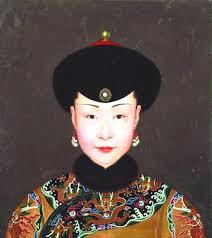
Qianlong’s second, and final, empress is known only as Empress Nara. She was ever given a posthumous title to honor her, nor was she given an empress’s funeral after her death. In fact, we know very little about her as it is widely believed almost all her records and portraits were destroyed after greatly offending the Qianlong Emperor.
Unfortunately we are not entirely sure of her birthdate, though some believe she was born in March of 1718, and we aren’t entirely certain which Nara clan she belonged to as she has been listed belonging to both the Ula Nara and Hoifa Nara clans.
We do know she married the Qianlong Emperor when he was still Prince Hongli and became his secondary consort. We do know that he favored her during this point and after he ascended the throne he named her Consort Xian in January of 1738. A few years later she was promoted to Noble Consort Xian after winning the favor of Empress Dowager Chongqing.
After the death of Empress Xiaoxianchun in 1748, Noble Consort Xian was promoted to Imperial Noble Consort and assumed control of the harem. After the end of the mourning period for the previous empress, she was then promoted to the Empress Consort in September of 1750.
Empress Nara would accompany the emperor on several of his trips to hunting grounds and ancestral worship sites. She would give birth to three children during her tenure as empress: Yongji, an unnamed daughter, and Yongjing. Both her daughter and Yongjing would die as infants.
In 1765, Empress Nara would experience her downfall. She was accompanying the emperor on a tour of Southern China when Empress Nara would cut her hair. This was considered a grave offense as the Manchurian people were only allowed to cut their hair when they were in mourning. Her cutting her hair was seen as cursing both the emperor and his mother, the empress dowager.
Empress Nara then returned to the capital before the rest of the entourage. When the emperor returned to Beijing he had the empress’s four imperial edicts, all her gifts, and her imperial seal confiscated. He also reduced her maid’s to just two, which was the same amount of maids a second class attendant would have. While she was still empress in name, Empress Nara had fallen out of favor and she would remain as such til her death.
Empress Nara would die in August of 1766 but the exact date is unknown. We know that she was already ill in July of that year, but the Qianlong Emperor would still leave for his hunting trip at the Mulan Hunting Grounds and refused to return to the capitol when he heard of her death. Instead he ordered her son Yongji to return and handle the funeral.
Despite being empress, her funeral was supposed to be treated as that of an Imperial Noble Consort but was even scaled down from that. No princesses, nobles, or high ranking officials were required to attend the funeral nor were the imperial cabinet meetings canceled. She was not buried next to the emperor's future resting place as an empress should be and her coffin was of lower quality then supposed to be for her station.
Empress Nara would die alone and in relative obscurity for commiting a crime we will never know the reasoning behind.
Titles:
Lady Nara (from 1718)
Secondary Consort (from Dec 1734)
Consort Xian (from Jan 1738)
Noble Consort Xian (from Dec 1745)
Imperial Noble Consort (from May 1749)
Empress (from Sept 1750)
6 notes
·
View notes
Text
Empress UlaNara (乌拉那拉皇后)
Among the most controversial empresses in Chinese imperial history, Empress Nara stands out prominently. Little is known about her early childhood, upbringing, or even her personal name. What we know for sure is that she came from the influential Ula Nara clan, one of the most prominent Jurchen (later Manchu) families of the time.
Ulanara’s journey to the throne of the empress began as a consort to the Qianlong Emperor.After the death of his first wife, Empress Xiaoxianchun,Ulanara was elevated to the status of Empress in 1750. However, her relationship with the emperor was never as affectionate as that of his first empress. Despite her new rank, she seemed to live in the shadow of her predecessor, a factor that may have contributed to the eventual breakdown of her relationship with Qianlong.
It is not known why exactly caused the estrangement of the pair. Everything fell apart in 1765 during an imperial tour to southern china when the empress, for unknown reasons allegedly cut a piece of her hair as a sign of retaliation.
That action would forever seal her fate as then Qianlong publicly denounced her of her title, stripped her of all power and sent her to exile
Empress Ulanara died shortly after her disgrace in 1766, while still exiled from court life. Although she was buried in the imperial tombs, her burial rites were notably diminished compared to those of other empresses, reflecting her fall from favor.
Nara is really my favorite empress, you wouldn’t exactly expect women of that time and especially that rank to behave in such a manner but i so get it (she was just a girl), anyways, tragic but fascinating.
(it is also said all her portraits where destroyed so we don’t know if this is actually her)
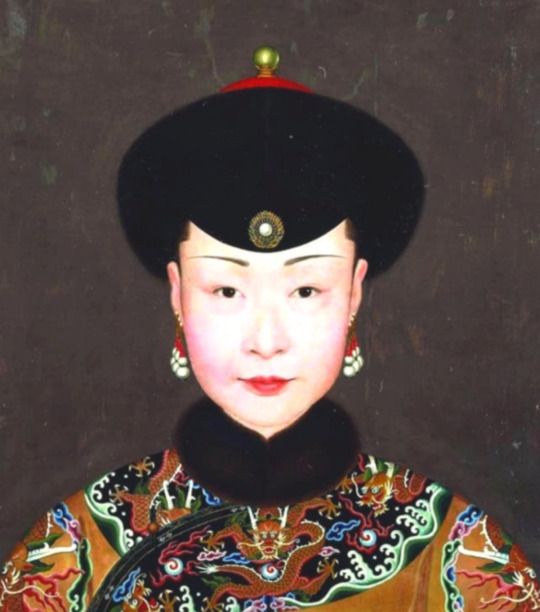
#china#chinese history#history#education#language#qing dynasty#archaeology#etymology#18th century#qing#ula nara#qianlong
6 notes
·
View notes
Text
Dong Jie: What I've Seen Her In
Ruyi's Royal Love in the Palace - Fuca Langhua - The First Empress Xiaoxianchun Di Fujin→ The First Empress

4 notes
·
View notes
Text
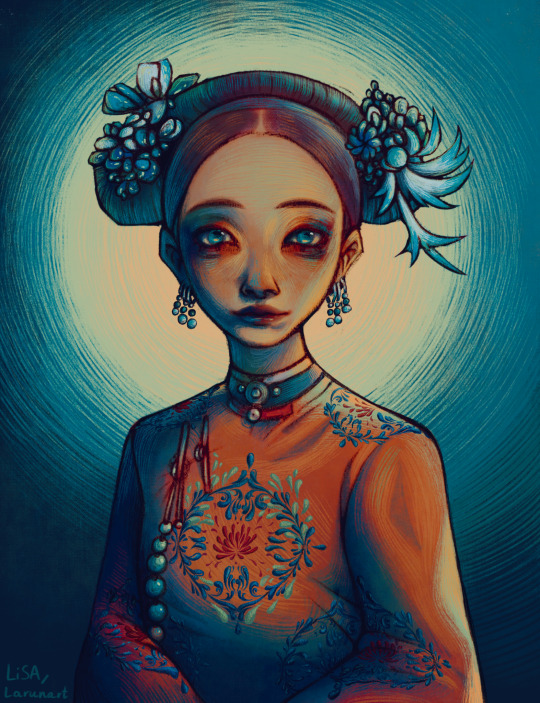
Got commissioned to draw Empress Fucha
#commissioned art#commissions open#empress fucha#empress xiaoxianchun#fucha rongyin#the story of yanxi palace#fanart#artist on tumblr#art#artist#artwork#digital art#drawing#illustration
41 notes
·
View notes
Photo
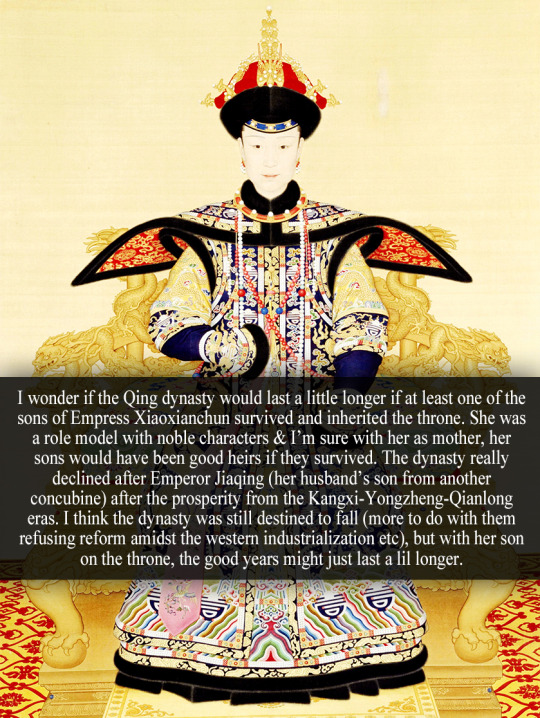
“I wonder if the Qing dynasty would last a little longer if at least one of the sons of Empress Xiaoxianchun survived and inherited the throne. She was a role model with noble characters & I’m sure with her as mother, her sons would have been good heirs if they survived. The dynasty really declined after Emperor Jiaqing (her husband’s son from another concubine) after the prosperity from the Kangxi-Yongzheng-Qianlong eras. I think the dynasty was still destined to fall (more to do with them refusing reform amidst the western industrialization etc), but with her son on the throne, the good years might just last a lil longer.” - Submitted by Anonymous
9 notes
·
View notes
Text
International Historical Drama Deaths That Broke Me (11/?)
Empress Fuca Rongyin, Empress Xiaoxianchun
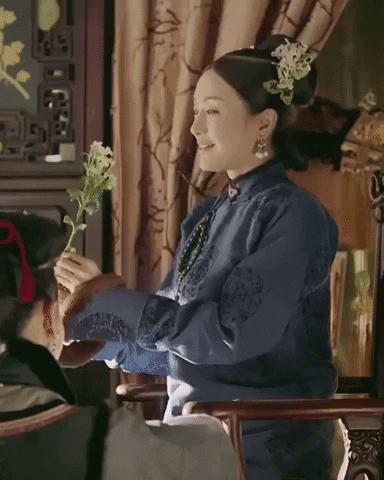
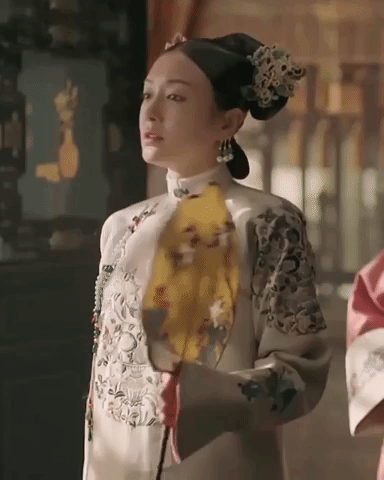
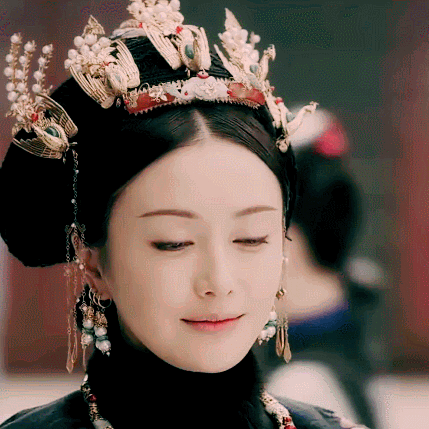
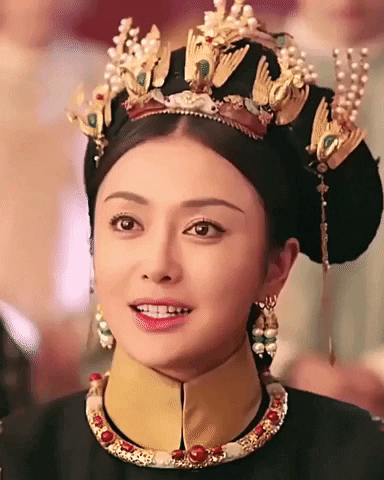
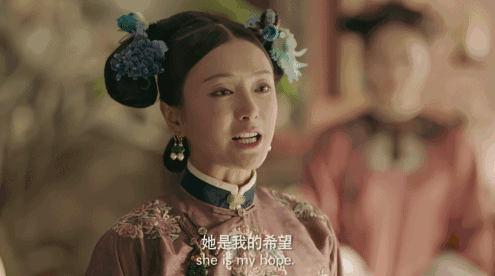
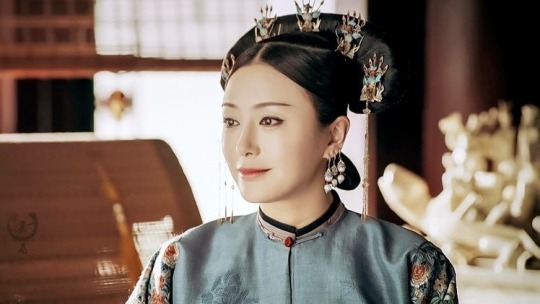
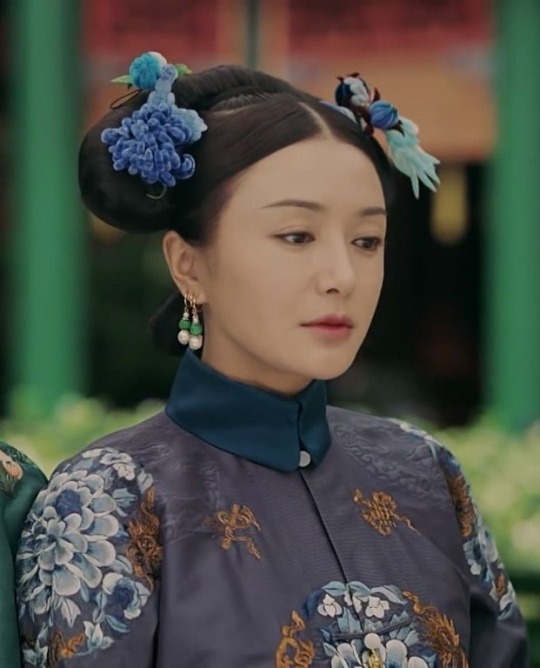
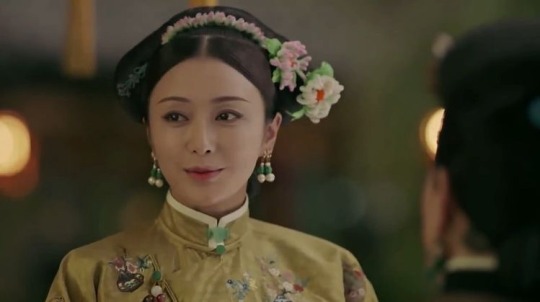
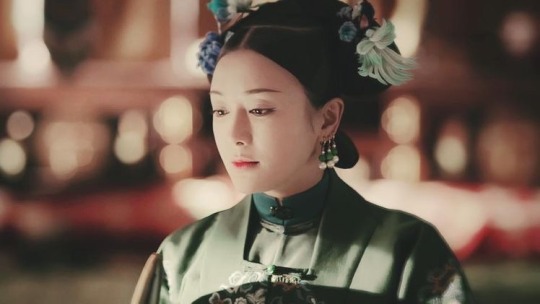
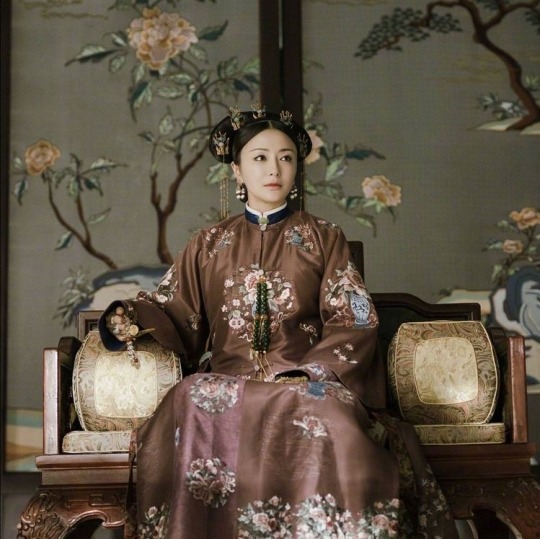
#fuca rongyin#empress xiaoxianchun#story of yanxi palace#international historical drama deaths that broke me
61 notes
·
View notes
Photo

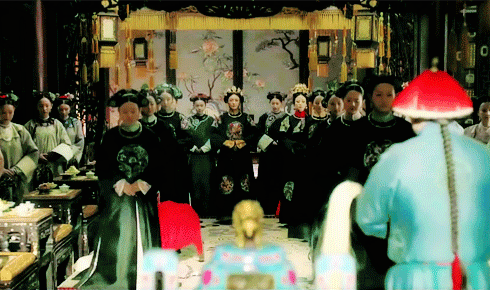
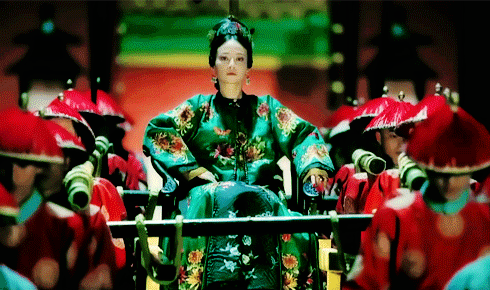
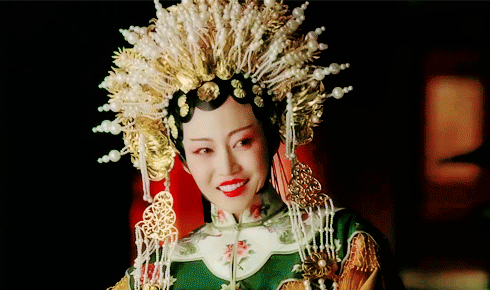

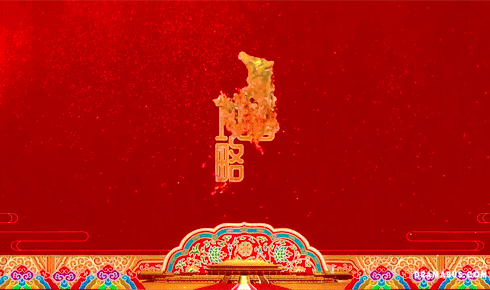
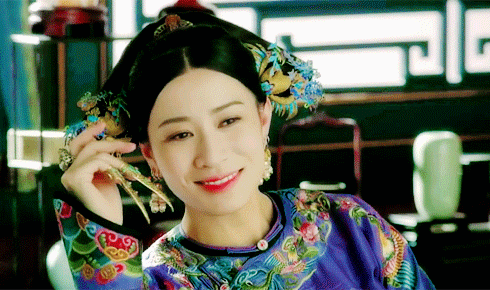

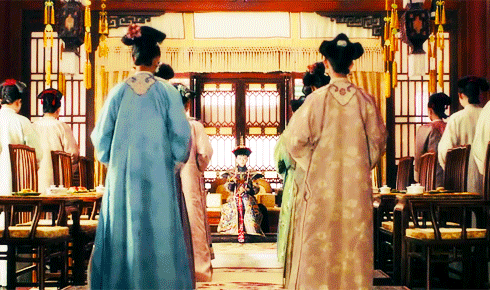
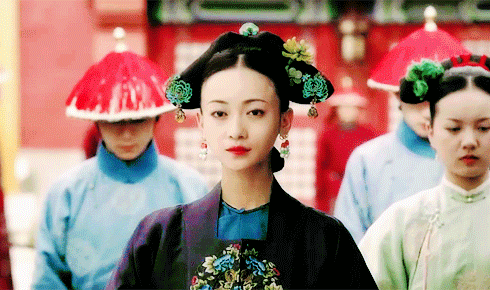
Story of Yanxi Palace (2018) | Fuca Rongyin, Empress Xiaoxianchun (孝賢純皇后) / Gao Ningxin, Imperial Noble Consort Huixian (慧賢皇貴妃) / Hoifa Nara Shushen, Consort Xian (嫻妃), later Step-Empress (繼皇后) / Wei Yingluo, Imperial Noble Consort Lingyi (令懿皇貴妃), later Empress Xiaoyichun (孝儀純皇后)
Look at the mirror, the face is thin, Seeing love and hate, new and old, See the lamp like the day, tears overflowing, See who is coming, After dusk...
Happy Birthday @wickedesprit! 💞💕
#perioddramaedit#story of yanxi palace#cdrama#cdramaedit#fuca rongyin#empress xiaoxianchun#孝賢純皇后#gao ningxin#imperial noble consort huixian#慧賢皇貴妃#hoifa nara shushen#empress ulanara#皇后 那拉氏#wei yingluo#imperial noble consort lingyi#令懿皇貴妃#empress xiaoyichun#孝儀純皇后#chinese consorts#chinese empresses#huang hou#皇后#imperial china#qing dynasty#18th century#i have a kinda love-hate relationship with this show#don't like and also kinda like it!#*mine#my edits
181 notes
·
View notes
Photo
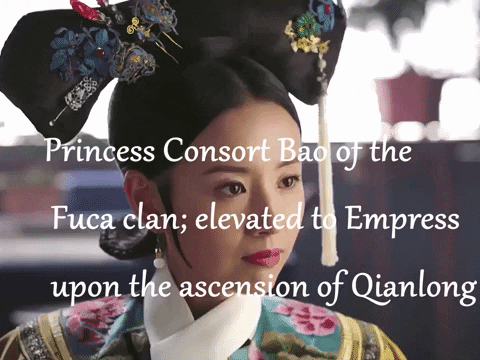
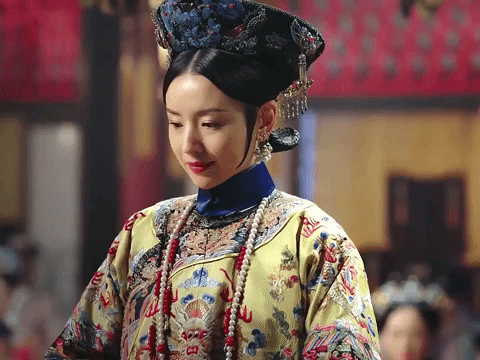
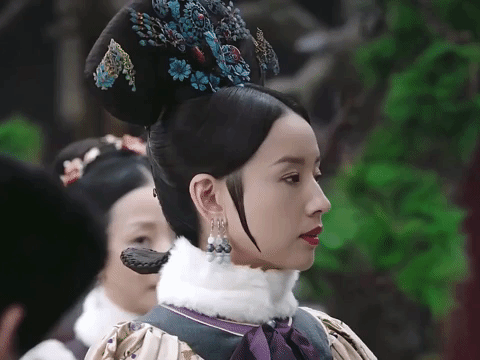
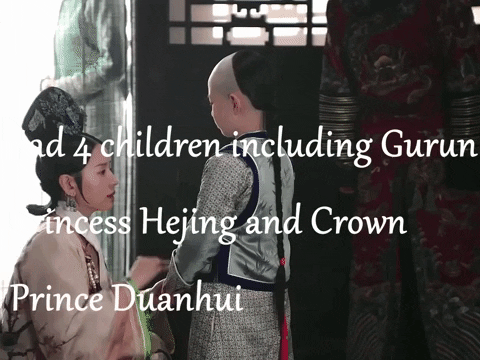
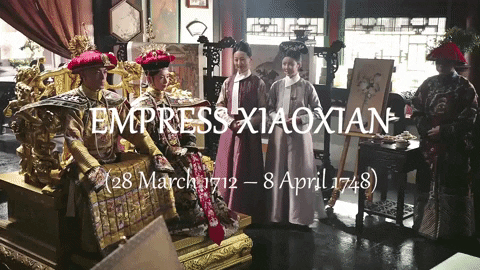
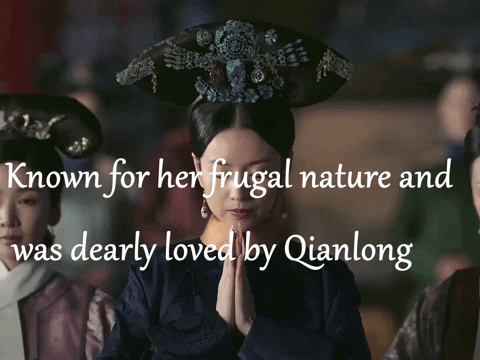
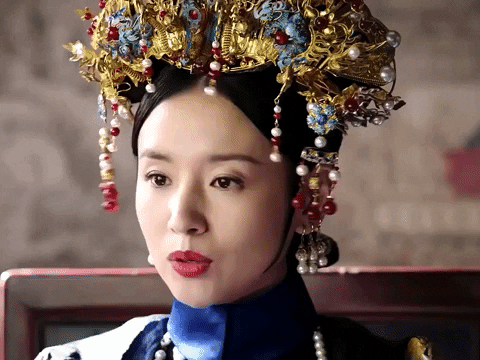

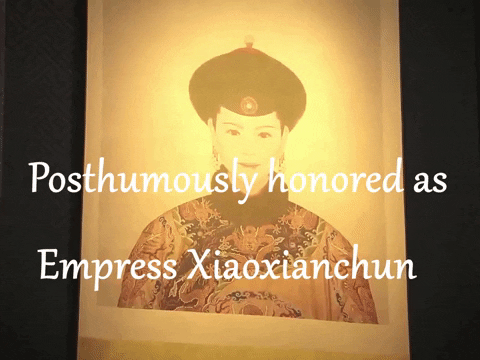
legend of ruyi: dong jie as empress xiaoxian
dedicated to @michyeosseo for your constant encouragement and support
#ruyi's royal love in the palace#legend of ruyi#cdrama#cdramanet#ruyi zhuan#cdramaedit#cdramagifs#fuca langhua#empress xiaoxianchun#dynasty: qing dynasty#dong jie#stuff: legend of ruyi#stuff:mine#requests/dedications#wihedits
49 notes
·
View notes
Note
In the history of Yanxi Palace, I noticed that one of Empress Xiaoxianchun's main maids was from the Hitara clan. Initially I thought it wasn't a noble clan, but when Erqing married Fuheng and showed her true colors I questioned myself, why would a girl from a noble clan be sent to serve as a consort? It wasn't as if the most powerful ministers didn't know that it wasn't a very safe place, especially for a maid.
Serving so closely to the empress is a prestigious position, it's not out of the question that a girl from a family of position would be picked for that position. If anything, only those with experience and/or family with the kind of prestige that Erqing is supposed to have would be considered suitable to serve the empress so personally.
As for safety, is it not safe? No one except the emperor, empress dowager, and empress had the power to punish the empress' personal servants, so that position offers as much protection as it gets. Unless the maid did something horrendous, even the empress dowager and emperor would have to give the empress some face when dealing with her servants. If anything, that position so close to the empress is not only social status but also possibility of rising status considering there is a chance that she could catch the emperor's eyes.
10 notes
·
View notes
Text
friendship ended with fucha langhua, now fucha rongyin is my wife
#out of the palace { ooc }#empress xiaoxianchun { lady fucha }#dont look too much into it they're the same person#i just started yanxi gong tho and i....... kinda like the characterization of empress xiaoxian better oops#BUT LIKE... BOTH ARE GOOD#i just think qin lan is a slightly better actress#which is weird bc dong jie is p Valid#anyway i STILL havent started my edit because I can't find a picture of a decent white hanfu so you know what that means#thats right#im gonna DIE#not really#but like#oof#ive been up since 7 am yesterday and like while that's definitely not like#a super long time#i am tired#but not tired enough to sleep#and the cat fucked up one of my blankets and my pillow so they gotta be washed#but im gonna hopefully be sleeping so hard that my face falls off#then thursday i gotta get my mom's birthday present and then friday i gotta clean AND THEN IT'S SHABBAT TIME BABEY#spoiler alert my rabbi is hot
3 notes
·
View notes